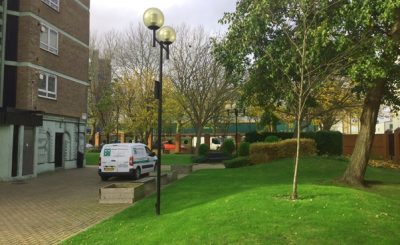Britain used to be a nation of property owners. It was said that the UK had a higher percentage of people who owned their own home than any other country in Europe; however, with property prices rocketing and wage packets stagnating, it has become a lot harder to get on the property ladder.

Why should the government help?
When you want to move, you are usually in what an estate agent would call a ‘chain’. This means that you have a property to sell to someone and a property you want to buy. This forms a chain, with each link (individual/couple/family) dependant on the other links for the transactions to complete. This model works well if there are first-time buyers involved, as they are usually buying the smaller houses at the bottom of the chain to take their first step onto the property ladder. Their desire to purchase is therefore crucial to the rest of the chain.
The property market keeps the economy moving and the government receives tax money in the form of stamp duty or people working in the property industry paying income tax. The government cannot afford to let the wheels of the industry stop turning, so it is in its best interests to incentivise first-time buyers.

Government schemes
The government has already incentivised first-time buyers in several ways; for example, the Help to Buy scheme helps first-time buyers to afford the deposit on their first property by loaning them the money and taking a share of the equity. This both helps the buyer and gives the government a potential cash boost when the property is sold.
The government also introduced lifetime ISAs, which are a great tax-efficient way of helping first-time buyers to save up the money for a deposit.
Rejuvenation schemes
Liverpool City Council piloted a scheme to sell houses for £1 in 2015. It owned around 1,000 local authority homes that were in such desperate need of repair that they couldn’t be used to house anyone. The council sold these houses for £1 to first-time buyers who lived in Liverpool and who agreed to renovate the properties to make them habitable. The buyers also had to agree to live in their homes for at least five years. This helped to rejuvenate run-down parts of Liverpool and make the neighbourhoods more attractive for other buyers. This has greatly helped to improve housing and the general area in parts of Liverpool and has since been copied by other towns and even other countries.
If you are a first-time buyer, it is certainly worth considering this scheme, but find out exactly what you are committing to first. A building survey London and elsewhere is available from companies such as https://www.samconveyancing.co.uk/homebuyers-survey/home-buyers-survey-london and should be carried out before you agree to take part in such a project.
It is clear that the government should incentivise first-time buyers, as doing this has a positive impact on the local areas and both the local and national economy.







